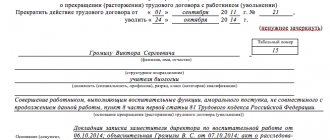Responsibility for extortion or theft of narcotic and/or psychotropic drugs and substances, as well as plants or their individual parts containing these components, is provided for in Article 229 of the Criminal Code of the Russian Federation. The criminal act analyzed below belongs to a group of similar crimes directed against the health and morals of society, united in Chapter 25 of the Criminal Code. Their main feature is that the encroachment occurs not on an individual, but on many persons. Perhaps even the entire country or an entire region.
This fact leads to rather severe penalties, including according to the criminal law norm analyzed in this article. For convenience, narcotic drugs will be further designated as NS, and psychotropic substances as PV.
An attempt to amend Chapter 25 of the Criminal Code regarding the severity of punishments was made in 2016. Article 229 of the Criminal Code of the Russian Federation, meanwhile, was not included in the list of norms subject to editing. The bill affected Art. 228, namely mitigation of punishment under part two.
Simple composition
In accordance with the text of Part 1 of Article 229 of the Criminal Code of the Russian Federation, in case of extortion or theft of NS and PV, as well as plants or their individual parts containing these components, a sanction is applied in the form of deprivation of liberty of the guilty person for a period of 3-7 years. It is possible to aggravate the punishment by restriction of freedom for up to 1 year or without it.
In this case, theft means the unlawful seizure of NS and PV from persons (both individuals and legal entities) who own them legally or illegally. It can be carried out, among other things, by collecting plant material (in whole or in part), provided that they are included in the List of NS, PP, and their precursors subject to control in the Russian Federation. They can be collected both from agricultural lands and from the plots of ordinary citizens where they are grown illegally.
In practice, it is necessary to distinguish between Articles 228 and 229 of the Criminal Code of the Russian Federation. Thus, if the collection of the listed funds was made from areas where the harvesting of drug-containing plants has already been completed, and in connection with this, protection from them was removed, no corpus delicti is formed under the analyzed norm. Actions in this case are qualified under Art. 228 CC.
Methods for transporting smuggled cargo
Such a crime is committed the moment the smuggled cargo crosses the border. At the same time, it makes absolutely no difference how exactly the drugs were moved between different countries. The cargo can be carried in different bags, boxes, trunks and hiding places, and sometimes inside the human body. There are frequent cases of ingestion of drug packets, when the prohibited substance enters the stomach and is carried across the border.
In addition to the above, a common method of transporting drugs is through the mail. In this case, shipment is carried out through parcels and parcels with various permitted goods. The forbidden drug is often hidden under plant seeds and cigarettes.
The following main methods of transporting forbidden cargo can be distinguished:
- Friendly cover.
- Transportation of prohibited substances in rolls of plastic film.
- Crossing in hollow suitcases, bags and other types of hand luggage.
- Moving in pre-prepared caches of hand luggage.
- Along with the transported items.
- On the smuggler's body in pre-prepared belts and pockets sewn inside clothes and shoes.
- In internal organs (swallowing).
- In railway vehicles (in a train carriage, inside sleeping sets, etc.).
- In vehicles (under car seats, interior trim, etc.).
- On long-distance vessels (in hollow structures, fuel tanks, etc.).
One of the most famous cases was an incident in the Pskov region, when a large container with alfalfa seeds that were sent to the Netherlands was detained.
Employees of the Sebezh customs service noticed that the corrugation on the inside and outside of the container ribs did not match. When the walls were cleared, it turned out that they were double; between them, experts found more than 1,500 kg of hashish.
Qualified staff
Signs of a qualified composition occur when the crime described in the first part of the norm is committed: by a previously agreed group of persons, or with the implementation of violence, characterized as not dangerous to the health and life of the victim, as well as with the threat of its use in a significant amount or using one’s position on duty.
For committing these acts, Article 229 of the Criminal Code of the Russian Federation establishes punishment in the form of deprivation of liberty for a term of 6-10 years for the convicted person. Additional sanctions may be a fine of up to half a million rubles, either commensurate with the salary or other income of the offender for a period of up to 3 years, or up to 1 year of restriction of freedom.
Particularly qualified staff
Signs of a particularly qualified staff are reflected in parts 3 and 4 of the article. According to Part 3, for the acts described in Parts 1, 2, committed by an organized group or with the use of violence (the threat of its use), qualified as dangerous to human health and his life, as well as on a large scale, punishment is established in the form of deprivation freedom for a period of 8-15 years. Additional sanctions may be applied:
- a fine of up to half a million rubles, either commensurate with the salary or equal to other income of the offender for a period of up to 3 years,
- up to 2 years of restriction of freedom.
Part four art. 229 of the Criminal Code establishes sanctions for the acts specified in parts 1, 2, 3 of the norm. The main type of punishment is imprisonment of the convicted person for a term of 15-20 years of freedom. In addition, aggravation in the form of a fine of up to 1 million rubles, or equivalent to the salary or other income of the perpetrator for a period of up to 5 years, is possible, as well as a restriction for a period of up to 2 years of freedom or without it.
Since 2012, no changes have been made to Article 229 of the Criminal Code of the Russian Federation. The latest amendments of 2016, which were quite numerous, did not affect its wording.
Arbitrage practice
Articles relating to the circulation of drugs and psychotropic substances have recently gained the greatest “popularity” in the field of criminal proceedings.
Let's consider the judicial practice under Article 229 of the Criminal Code of the Russian Federation:
- The Akshinsky District Court of the Trans-Baikal Territory issued a guilty verdict under Part 2. Art. 229 regarding A.V. Dmitrova. The latter, while in the car of his friends, discovered cannabis oil in the pocket of the left seat, in a cigarette pack. He had a desire to find a remedy, which he did. Secretly pouring out some of the plant particles, he tried to return to his car as quickly as possible. Dmitrov was stopped by traffic police officers and searched the car. 0.69 grams of the substance was found, which is a significant amount.
- By the verdict of the Leningrad District Court, E. Moroz was brought to justice under Part 1 of Art. 229 of the Criminal Code of the Russian Federation. The culprit came to visit her neighbor. Knowing that her mother was taking Morphine prescribed by a doctor, she decided to steal the drug. The reasons for this behavior were envy of the neighbor, her successful position, high salary, and the opportunity to travel around the world. The accused took 7 ampoules from the cabinet and subsequently sold them to local youth.
- Court hearing in the case of N.A. Kurbatov ended in imprisonment for 6 years and 4 months on a set of articles for possession and illegal acquisition of narcotic drugs. So, on September 16, 2022, Kurbatov drove his car to visit a friend. At the time of the latter’s visit, there were several other people in the house; they were celebrating the arrival of one of their comrades from the army. K. went to the kitchen, where there was a paper package with poppy seeds on the table. K. took it with him and hurried to say goodbye and leave. However, on the way home he was stopped by patrol officers. They searched the car and sent K. for a medical examination, which revealed traces of drugs in his blood. Subsequently, at trial, K. did not deny his addiction, but argued that the poppy was his own, and he did not steal it. But the testimony and other arguments of the employees confirmed the fact of theft.
- According to Part 4 of Art. 229 paragraph “b”, E. Baranov and P. Kulakova were convicted. They transported drugs (heroin) across the state border of the Russian Federation from other countries and tried to sell their goods for money on the territory of the state. As a result, they were sentenced by the Supreme Court of the Russian Federation to 15 years in prison. On May 27, 2013, E. Koestler smuggled heroin in his own stomach across the Russian border. The total weight was 211.33 grams. Having swallowed the goods, he flew to Russia by plane. However, he was unable to leave the airport; vigilant police officers noticed him and approached him to check his documents. The latter became agitated, which aroused the suspicion of the employees. As a result, he was sent to the hospital for a medical examination. The contents of the gastrointestinal tract were removed. Koestler will be sentenced to imprisonment for 14 years and 5 months by decision of the Moscow City Court.
- A. Shatalov was sentenced by the St. Petersburg City Court to serve a sentence in prison for 13 years under Part 4, paragraphs “a”, “b” of Art. 229 CC. The culprit was a member of an organized crime group and transported and smuggled cocaine in particularly large quantities.
- A. Dotsenko was sentenced by the Voronezh city court to 16 years in a maximum security colony under Part 4. p. "c". He came to his ex-wife in a deranged state. He knew that for health reasons she was taking strong sleeping pills, an analogue of narcotic drugs. The wife did not let the extortionist in, he got angry and pushed her. She fell and hit her head. These actions led to the woman's death. Dotsenko took the medicine and left the apartment.
Judicial practice illustrates the serious attitude of the legislator to such an offense. Quite long sentences are assigned, which may help the person who has stumbled to become a law-abiding citizen of his state again.
The most common use of this article is in connection with the activities of an organized criminal group and the transportation of substances from other countries to the territory of our state.
The article implies the illegal acquisition of funds and substances. Moreover, according to the logic of this norm, the quantity of such funds does not matter; the very fact of committing an illegal acquisition is punished.
Subject and object of the crime
According to the analyzed norm, the subject of a criminal act is PV and NS. However, as mentioned above, along with them, the Federal Law also specifies their analogues, precursors. Theft or extortion of the latter also constitutes a crime under Article 229 of the Criminal Code of the Russian Federation.
The object of the criminal attack is the health safety of an unlimited number of persons (the population). Additionally, depending on the composition, this capacity may include the health and life of individual citizens and property relations.
Smuggling concept
What is smuggling? The term "smuggling" refers to both the import and export of illegal items. Objects can be different: money, jewelry, weapons and even people. Drugs are a common item of smuggling and therefore deserve special public attention.
It is important to note that the Criminal Code defines drug smuggling as the movement of not only drugs, but also their precursors, analogues, and plants that contain narcotic elements. Prohibited drugs also include psychotropic substances.
Possession of equipment for the creation of prohibited substances is also considered a criminal offense.
Of course, the fight against drug dealers must be waged promptly, but sometimes unsmart students, trying to earn easy money, do not understand that even moving a few grams of hashish or a psychotropic substance across the border entails criminal liability.
To understand the seriousness and extent of a crime, law enforcement agencies must have a huge amount of knowledge when investigating a case. This will help them expose the culprits.
Competent specialists capable of handling such cases are:
- employees of the body that identified the crime who are admitted to the preliminary investigation;
- Federal Security Service;
- internal affairs bodies of the country;
- specialists from the authorities responsible for combating illicit trafficking.
The prosecutor has the right to determine which service to assign a specific case to.
Objective side: description
The objective side can be expressed in two types of actions.
Firstly, the theft of NS and PV. What this is has been discussed above. The moment the theft ends is determined based on its form. The crime is considered completed at the moment of withdrawal of drugs and NS, as well as their analogues and precursors, and the guilty person has a real chance to dispose of them at his own discretion. If the theft is carried out by robbery (Article 229 of the Criminal Code, part 3, paragraph “B”), then it is considered completed from the beginning of the attack involving violence or the threat of its use.
Secondly, the objective side can manifest itself in the form of extortion. It is interpreted as an illegal demand by a criminal to transfer PV and NS to him or a third party under the threat of committing acts of a violent nature, or disseminating certain types of information that disgrace the victim and/or his relatives. Other types of information may also be used, the disclosure of which in one way or another could cause significant harm to the legitimate interests of the victim and his rights.
Extortion is considered committed from the moment when an illegal demand, supported by a threat, for the transfer of PV and/or NS was made.





